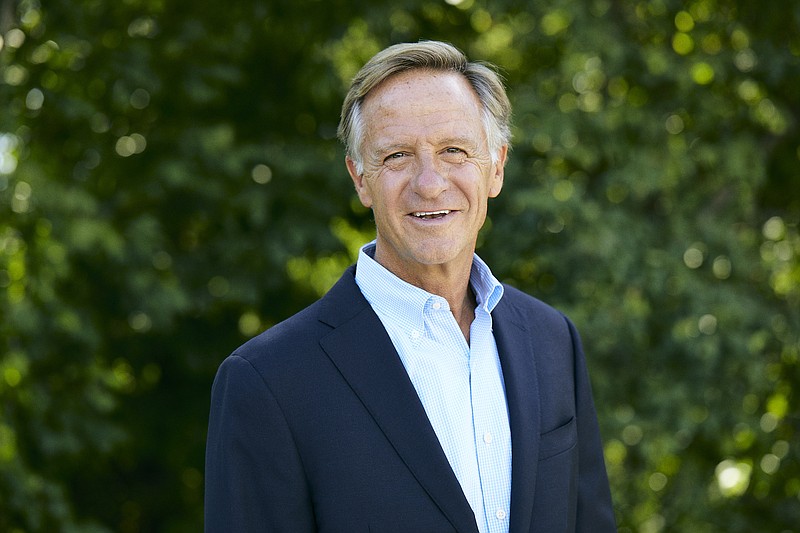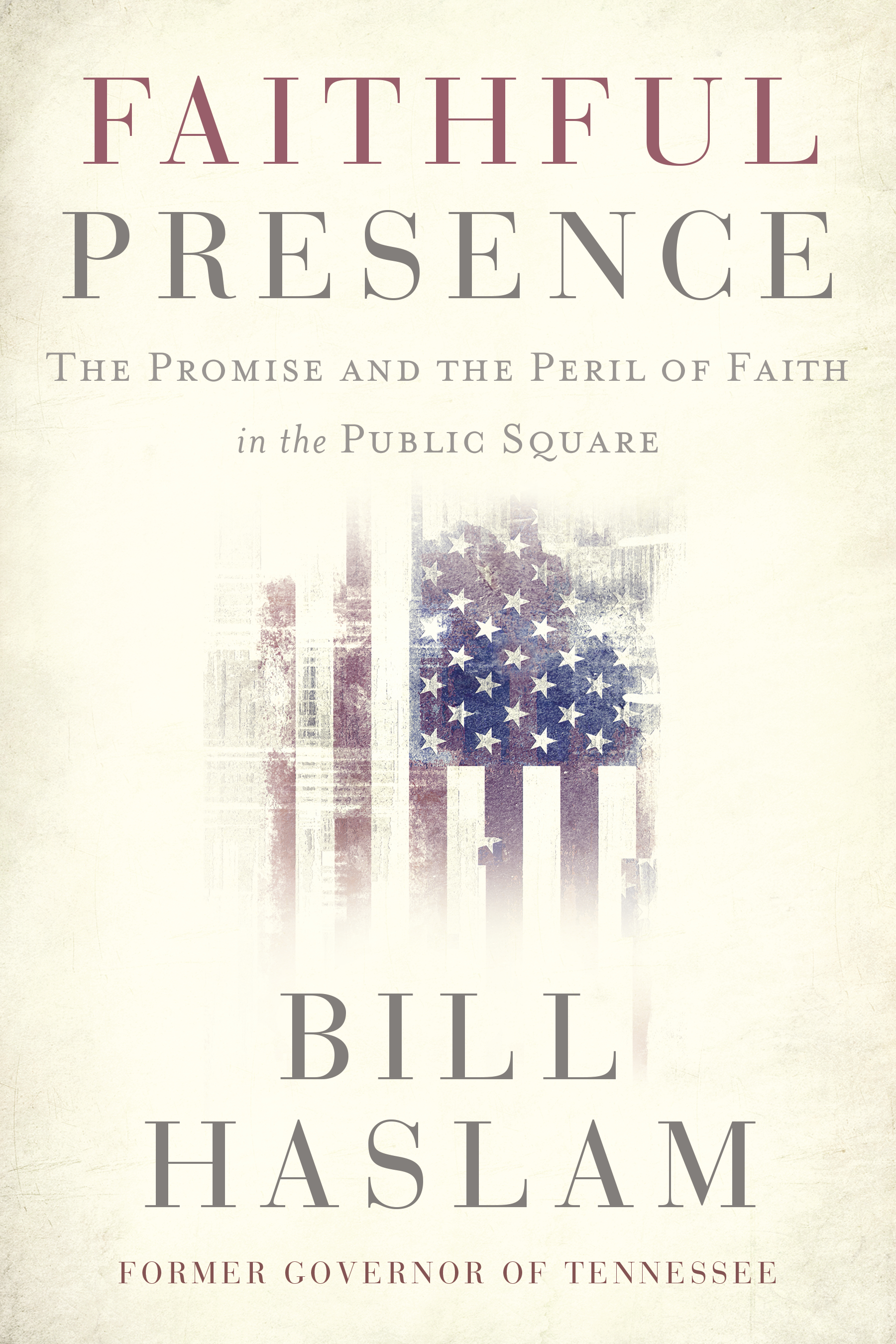"FAITHFUL PRESENCE: THE PROMISE AND THE PERIL OF FAITH IN THE PUBLIC SQUARE" by Bill Haslam (Thomas Nelson, 240 pages, $27).
A hearty guffaw comes from former Tennessee Gov. Bill Haslam when he's asked about the remarkable lack of cynicism in his first book, "Faithful Presence: The Promise and the Peril of Faith in the Public Square."
Haslam, 62, is a savvy Republican politician who served two terms as mayor of Knoxville, then went on to become governor of the state from 2011-19. It takes grit and arguably at least some ruthlessness to successfully negotiate a political career like that. In addition, he's a certified one-percenter, with a fortune estimated to be well more than $1 billion. His father founded the convenience store chain Pilot Flying J, where Haslam worked as president from 1995-99, while his brother Jimmy Haslam was CEO. Before running for mayor of Knoxville, he was an executive at Saks Fifth Avenue and a board member of Dallas-based Harold's Stores, which has since gone out of business.
In conversation, however, Haslam comes off more like the Presbyterian minister he once considered becoming than a billionaire businessman and politician. Before going into business, he thought about enrolling in seminary and pursuing a career in ministry. He is a longtime member of Cedar Springs Presbyterian Church in Knoxville.
This transcript of our recent conversation has been edited for length and clarity.
Q: What are you hoping to accomplish with "Faithful Presence"?
A: It's no secret that our country is very divided, and we're divided and mad. We're not just mad, but we think the other side has bad motives. My main objective is to speak to people of faith. The Bible warns us against seeing the speck in someone else's eye [while] we have a log in our own eye. What would it look like if we would act different from everyone else in this world that's divided by divisive, polarizing politics?
Q: Do you think Christians can lead the way out of partisanship when so many of the players seem to prefer it that way? Senate Minority Leader Mitch McConnell is a Baptist, for example. It just seems like a lot of the people who are participating in partisanship see it as a viable and good strategy.
A: My message to people of faith on both sides of the aisle will be this: The ways that Jesus talks about how we should act aren't dependent upon the circumstances we're in. In business, we don't say you should act ethically unless you're getting ready to go out of business. Or in your marriage you should be faithful, unless the person in the office next to you is really attractive. We don't make those exceptions. Yet because I don't think we've thought out the theology of our politics very well, we haven't really thought about how we should act in the public sphere.
Q: You say it's important for leaders to be humble, gentle and full of mercy, and you bring up Nelson Mandela. Does anybody active today fit that bill for you?
A: I think there're a lot of folks that do, over time. The example I also point to in the book is [President Abraham] Lincoln. I think that was a guy you can describe that way. That didn't mean he was weak. He was willing to withstand the death of 600,000 citizens to keep the country together and to eliminate slavery. If you look at the writings of Dr. [Martin Luther] King, I think those thoughts are infused. There are people on the political stage today who fit that bill, although all of us do it imperfectly. Believe me, there were times when I was in office when I found my own advice hard to follow.
Q: Religion has been declining in the United States, including Christianity. Do you think the role of religion in politics might at some point, maybe closer in the future than we think, be irrelevant, because people won't be religious?
A: Our country's changing a lot. I think that changing culture will affect the politics of today and down the road. If you look at the numbers, a lot of what's changing are those people who I would call nominal believers. When we were growing up and when our parents were growing up, you belonged to a church. That's one of the things you did. Today, there's not the same cultural expectation. I'm not sure that's a change in the many people who are truly trying to walk their faith.
To read an uncut version of this interview - and more local book coverage - visit Chapter16.org, an online publication of Humanities Tennessee.

